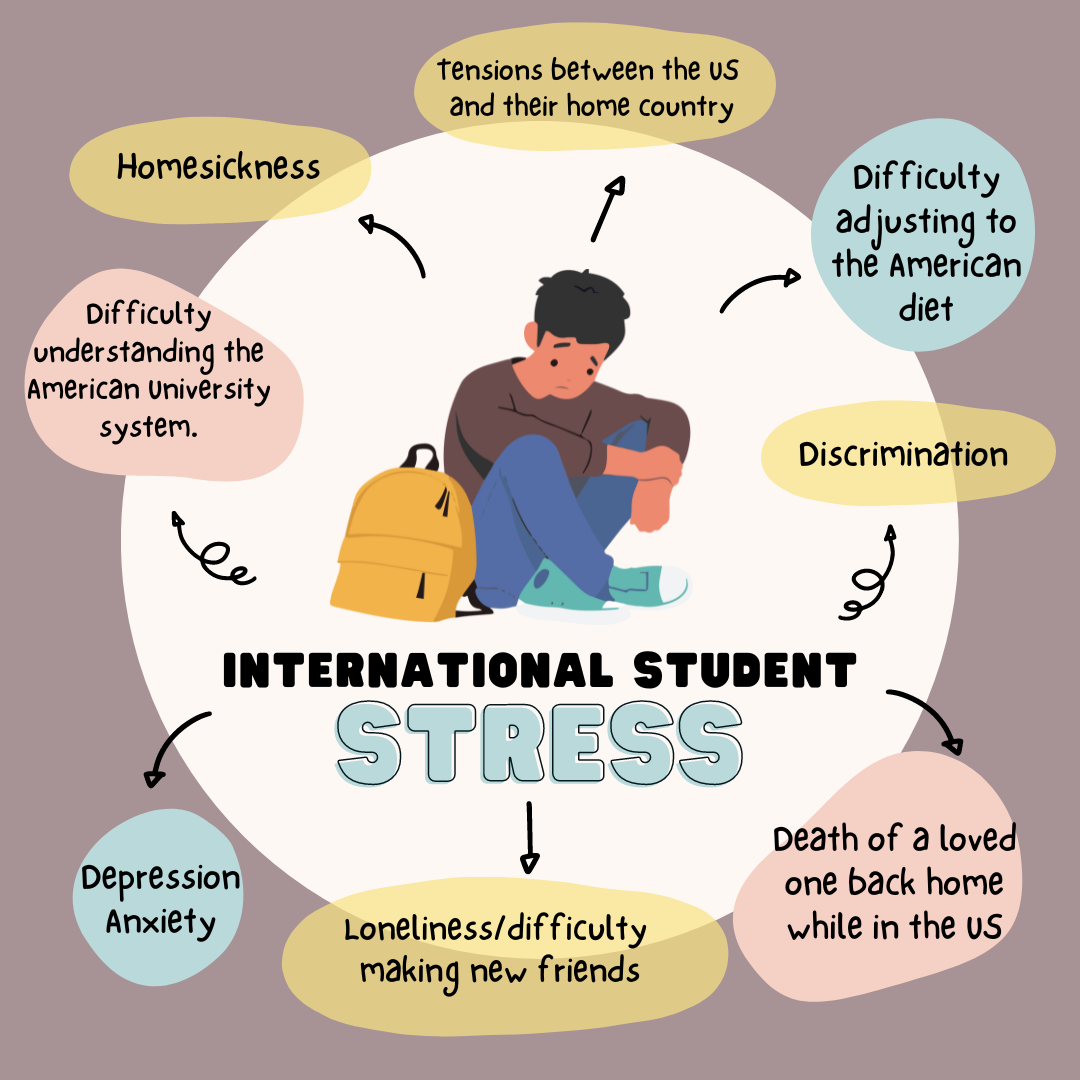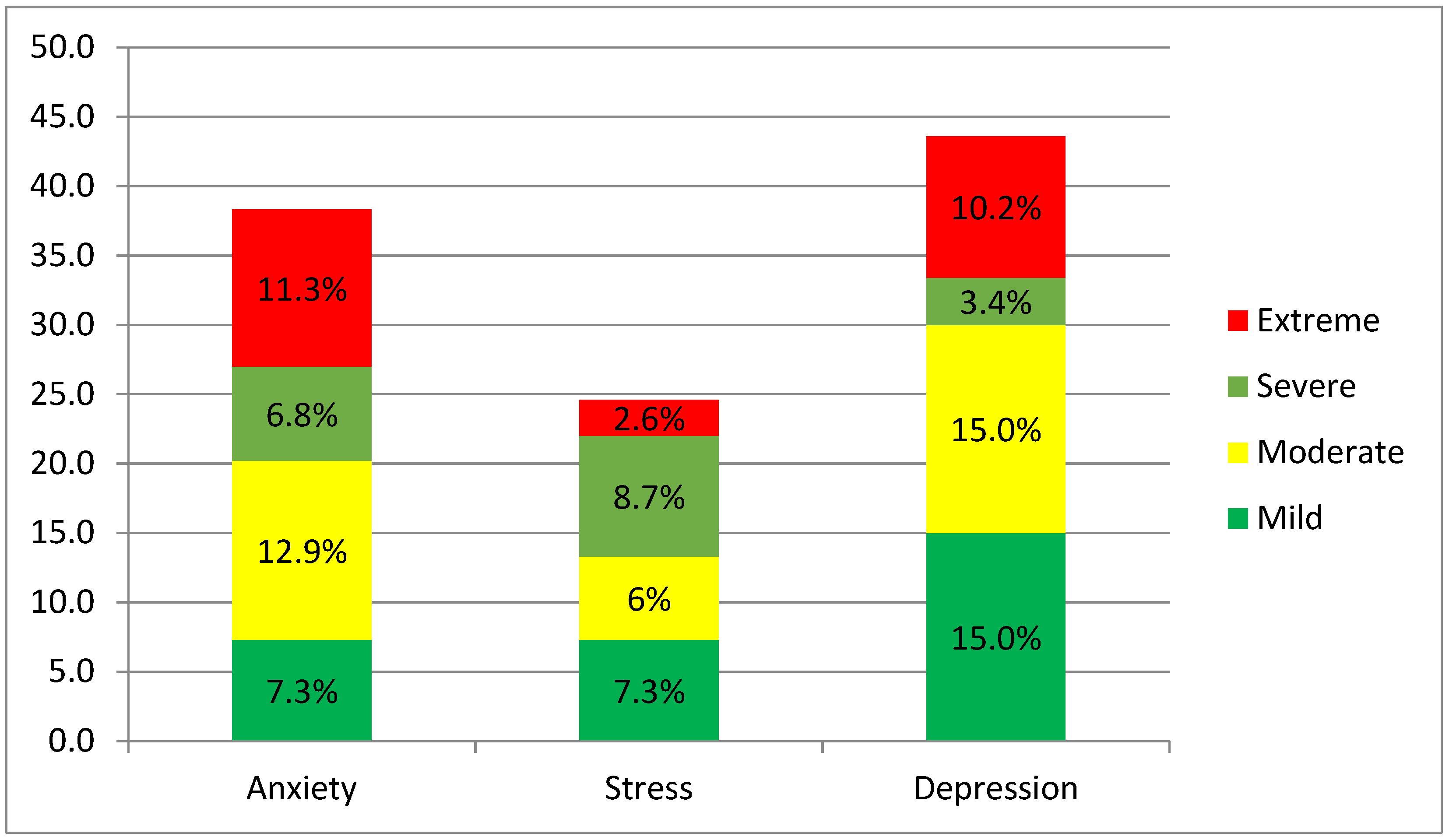PP#4- Wild card

The mental health challenges faced by international students
International students often face a variety of challenges as they adapt to a new academic environment, culture, and country. While studying abroad can be an exciting and life-changing experience, it can also take a significant toll on students’ mental health. The pressures of academic performance, cultural adjustment, financial strain, and social isolation can contribute to feelings of anxiety, depression, and stress. These mental health challenges are often exacerbated by the lack of a strong support system, language barriers, and a sense of being far from home. This essay will explore the key ways in which mental health is impacted for international students, highlighting the specific factors that contribute to their emotional and psychological well-being.
Cultural Adjustment and Acculturation Stress
One of the most significant challenges faced by international students is adjusting to a new culture. This process, known as acculturation, involves adapting to a different set of social norms, values, and behaviors, which can be overwhelming and confusing. International students often experience "culture shock," a term used to describe the disorientation and stress caused by being in an unfamiliar environment. The novelty of a new language, food, lifestyle, and social expectations can lead to feelings of loneliness, confusion, and anxiety.
In the early stages of their stay, students may struggle with communication barriers, as they are not always proficient in the host country's language. Even if they can communicate in the language, the nuances and subtleties of social interactions can lead to misunderstandings and feelings of alienation. This sense of "otherness" can exacerbate feelings of anxiety and make it difficult for international students to form meaningful relationships, further contributing to their mental health struggles.
https://www.nafsa.org/sites/default/files/media/document/addressing-mental-health-chapter-1.pdf
Social isolation and loneliness
Another major mental health challenge for international students is loneliness. Many students come to a new country without a pre-established social network, and they may find it difficult to make friends in a completely unfamiliar social environment. Cultural differences can make it harder to connect with domestic students, and language barriers may prevent students from fully participating in social activities or academic discussions.
International students may also experience a sense of isolation because they are geographically separated from their families and support networks back home. In many cases, students may find it difficult to reach out for emotional support, either due to time zone differences, limited communication channels, or concerns about burdening their loved ones with personal struggles. As a result, students may feel disconnected, which can lead to sadness, depression, and a sense of emptiness.
The lack of strong social connections can lead to heightened feelings of stress and anxiety. Social support has long been identified as a key protective factor for mental health, and its absence can significantly exacerbate symptoms of mental illness. The social isolation experienced by international students can also contribute to a sense of low self-worth, as they may feel misunderstood or unimportant in their new environment.
https://campusmentalhealth.ca/toolkits/international-students/mental-health/
Financial stress and Economic strain
For many international students, the financial burden of studying abroad is a significant source of stress. The cost of tuition, accommodation, textbooks, and living expenses can be very high, and many students rely on part-time jobs or family support to make ends meet. However, in many countries, international students are limited in the number of hours they can work per week, which can make it difficult to generate enough income to cover their expenses.
The financial strain can lead to heightened anxiety, as students may worry about their ability to pay rent, buy food, or afford other essentials. Students who experience financial hardship may also feel a sense of guilt or shame, particularly if they come from families who have made significant sacrifices to support their education abroad. This stress can contribute to mental health issues such as depression, anxiety, and feelings of inadequacy.

Homesickness and Longing for familiarity
Homesickness is another common issue faced by international students. Being away from family and friends for an extended period can evoke a deep sense of longing for the familiar comforts of home. For many students, this sense of homesickness is not just about missing their family members but also about feeling disconnected from the traditions, food, and social norms that shaped their identity.
Homesickness can manifest in various ways, including sadness, anxiety, and a lack of motivation. It can also worsen other mental health issues, such as depression, as students may struggle with feelings of grief or loss. The longer students are away from home, the more difficult it may become to reconcile their experiences in the new country with their memories of home, leading to a sense of disorientation or identity confusion.
https://www.youtube.com/watch?v=GfCWUX9gnDc
Conclusion
The mental health of international students is influenced by a complex interplay of factors, including cultural adjustment, social isolation, academic pressure, financial strain, language barriers, and homesickness. These challenges can significantly affect their emotional and psychological well-being, leading to a variety of mental health issues such as anxiety, depression, and stress. It is essential for universities, policymakers, and support organizations to recognize the unique mental health needs of international students and provide targeted resources and support to help them navigate these challenges. By fostering a more inclusive and supportive environment, we can help international students succeed academically while also safeguarding their mental health and overall well-being.
Comments
Post a Comment